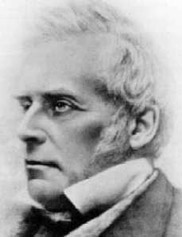A Quote by D. A. Carson
Not all Scripture is propositional, some of it is asking questions, some of it's rhetorical, but where Scripture is stating something, asserting something, making a truth claim, uttering a proposition that is claiming to be true, it is the truth.
Related Quotes
Some people are ignorant of the world but educated in Scripture, and are therefore prone to missing the relevance of Scripture - these sometimes, later, amidst life's challenges and doubts, turn from the faith; other people are ignorant of Scripture but educated in the world, and are therefore prone to missing the truth of Scripture - they are often those who ridicule the faith. The apologist stands somewhere in the center. He articulates where some are prone to understanding the truth in beauty, others the beauty in truth - that of a spiritual Creator in relation to his scientific creation.
If one has good faith, you can unlock the secrets of scripture, and in unlocking the secrets of scripture, you have access to everything God wants you to have. Ministers of megachurches become examples of the truth of that claim, because they're well paid, living in wonderful homes, driving very nice cars, dressed well. They are doing well, so if you do this, you too can have success.
Many people who call themselves deflationists are deflationists about propositional truth but not about sentential truth. I only ever mention that view to distinguish it from disquotationalism. I don't really have any objection to it, other than that I don't believe in propositions, so I don't think there's any such thing as a proposition's being true. Truth, on my view, is primarily a property of representations, such as sentences and certain kinds of mental states.
In questions of this sort there are two things to be observed. First, that the truth of the Scriptures be inviolably maintained. Secondly, since Scripture doth admit of diverse interpretations, that no one cling to any particular exposition with such pertinacity that, if what he supposed to be the teaching of Scripture should afterward turn out to be clearly false, he should nevertheless still presume to put it forward, lest thereby the sacred Scriptures should be exposed to the derision of unbelievers and the way of salvation should be closed to them.
If one denies that, when the meaning is true, then the meant is what is so, one rejects propositional truth. If the rejection is universal, then it is the self-destructive proposition that there are no true propositions. If the rejection is limited to the dogmas, then it is just a roundabout way of saying that all the dogmas are false.



































